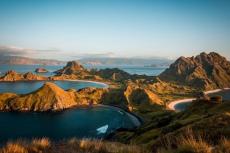Iceland poised to end whaling in 2024
Iceland says it will end commercial whaling from 2024 amid dwindling demand and continuing controversy.
Along with Norway and Japan, Iceland is one of only a few countries that still hunt whales commercially.
However, demand for whale meat has decreased dramatically since Japan—Iceland's main market—resumed commercial whaling in 2019, after a 30-year ban. Commercial whaling was banned in a 1986 International Whaling Commission embargo, but Japan withdrew from the IWC in December 2018.
The extension of a no-fishing coastal zone, requiring whalers to go even farther offshore, also made Iceland’s hunt more costly.
Consequently, the Icelandic government has now arrived at the realization that whale hunting does not make much economic sense anymore. According to Minister of Fisheries and Agriculture Svandís Svavarsdóttir, there are "few justifications to authorize whale hunting beyond 2024," when current quotas expire.
Consumer pressure mattered
Svavarsdóttir also pointed out that whale hunting has been controversial and recalled that the US retail chain Whole Foods had stopped marketing Icelandic products for a while as a result.
Iceland’s annual quotas for 2019 to 2023 allowed for the hunting of 209 fin whales—the planet’s second-largest species after the blue whale—and 217 minke whales, one of the smallest species.
More than 1,700 minke, fin and sei whales have been killed in Iceland since the 1986 embargo, according to data from Whale and Dolphin Conservation (WDC), a nonprofit organization. Meanwhile, Svavarsdóttir stated the fact that only one whale had been killed in the past three years showed that the practice had little economic benefit for the country.





























